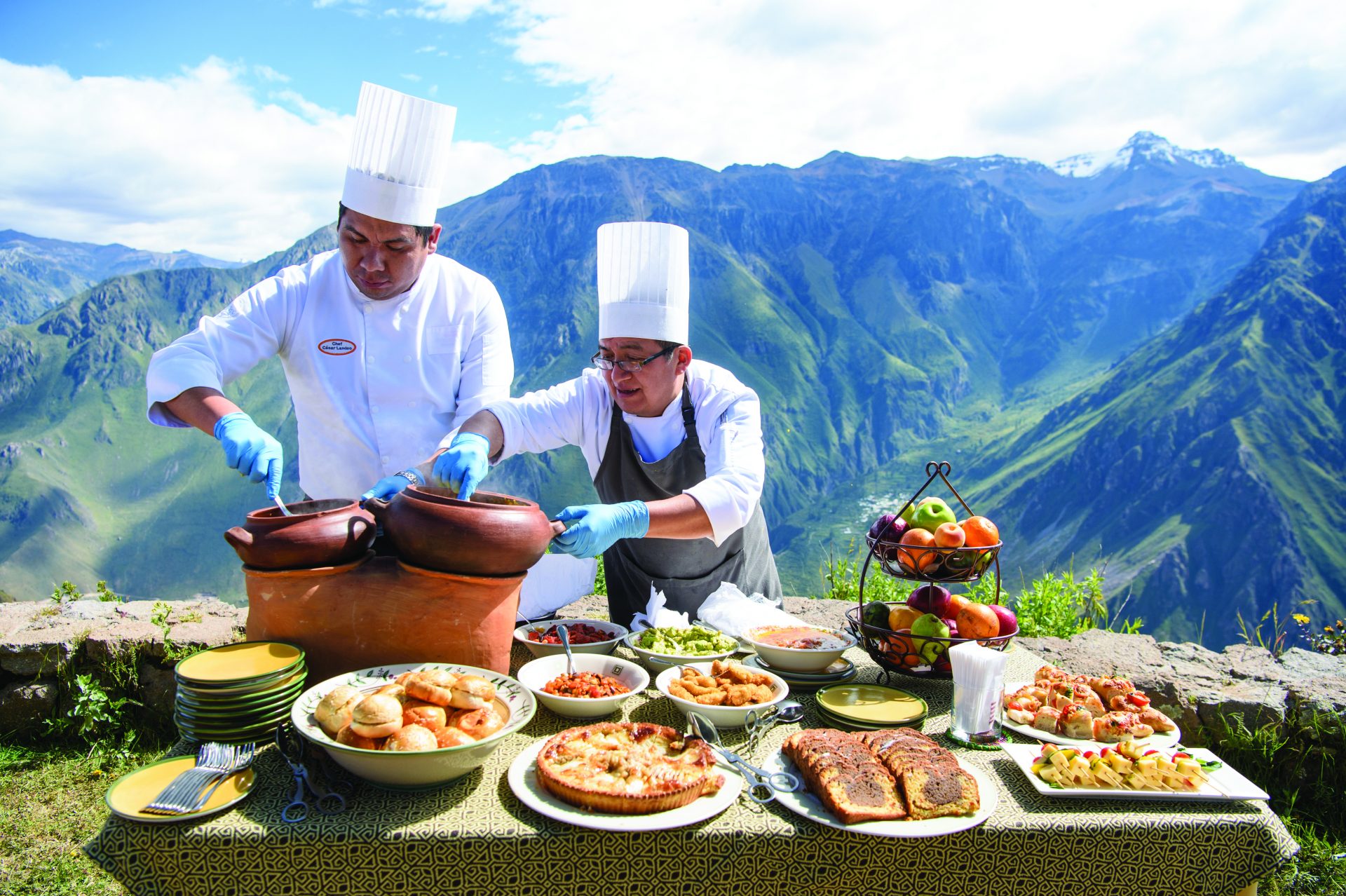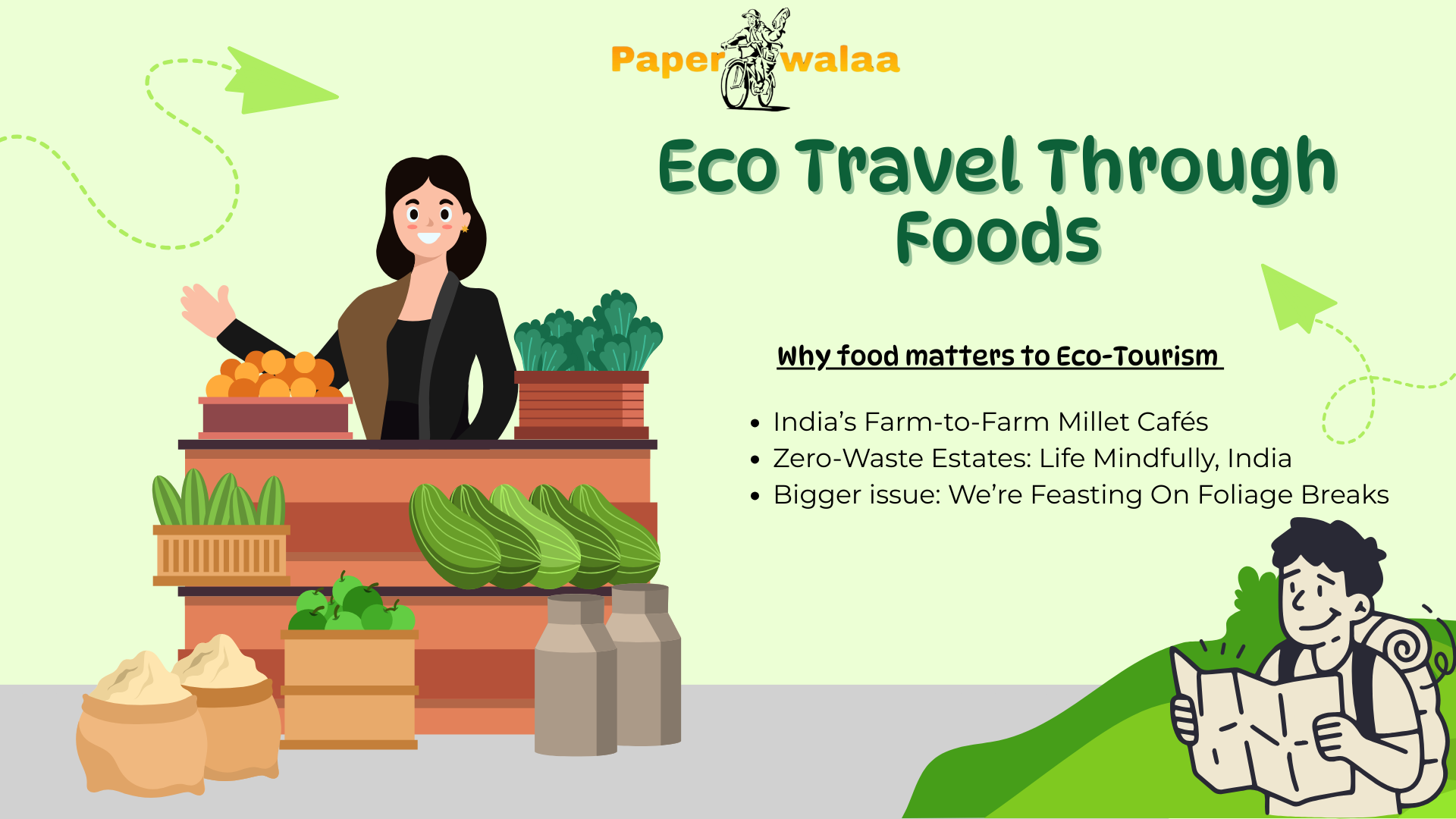Travel today is no longer just about destinations rather it’s also about experiences that leave a lighter footprint. One of the most powerful ways to practice sustainability while exploring is through food. From India’s thriving farm-to-fork millet cafés to zero-waste estates and even farm stays in the US, eco-conscious travelers are now choosing to eat and live responsibly on their journeys.
Why food matters to Eco-Tourism
We simply… eat local food that is helping to support local farmers and communities and eco-systems in the mix. Choosing locally sourced meals reduces carbon-heavy transportation, while embracing traditional crops like millets supports biodiversity. India’s millets ‘supergrain of the future’ receive unexpected revival as a source of cultural pride
Meanwhile, in the US, sustainable cafés and community-supported farms highlight the same principle: eating closer to the soil means traveling with respect.
India’s Farm-to-Farm Millet Cafés
Heirloom grains, mud thalis to be brought alive again by restaurants springing up across India
- Millet Mama (Bengaluru) – A café that is full-on committed to millet meals like ragi mudde, foxtail millet pulao, and gluten-free millet breads. And all are taken from their own farm.
- Dialogues Café (Bengaluru) – It’s basically known for experimenting with millet pancakes, wraps, and eco-conscious serving.
- Millets & More (Hyderabad) – It is a kind of technique wherein blending takes place of modern flavors with traditional grains, offering millet biryani and millet brownies.
- Jaipur’s Local Thalis – It has several cafés and dhabas serving bajra rotis paired with ghee and jaggery, reflecting Rajasthan’s millet culture.
Many of these cafés also host farm visits and millet cooking workshops for people to explore, making them more than just eateries as they’re also sustainable learning spaces.
Zero-Waste Estates: Life Mindfully, India
Eco-travelers in India are increasingly drawn to zero-waste estates—farm stays and homestays that run on principles of circular living. Some recommended ones are:
- Acres Wild (Coonoor, Tamil Nadu) – Consist of organic cheese-making farm stay that mainly re-cycles the waste, composts and uses local produce.
- Karuna Farm (Kodaikanal, Tamil Nadu) – It’s an off-grid eco-community that is powered by solar energy with zero-waste kitchens.
- Dewalokam (Kerala) – It’s a riverside organic farm which offers Ayurvedic meals, farm-fresh dining, and composting practices.
- Malgudi Farm Resort (Karnataka) – It mainly focuses on millet-centric meals, mud cottages, and a plastic-free unique lifestyle.
Instead, visitors harvest AM greens, get PM cooking lessons and enjoy zero-waste, community dinners.
And flash forward back home – Eco Cafes and Farms
With India shining bright with its millet resurgence, the US adds perhaps a new flavor to eco food travel. From farm-to-table cafés in California to zero-waste restaurants in New York and Seattle, travelers are seeing how urban spaces, too, are adapting sustainable practices. CSA’s test gives visitors hands-on farmer activity–like India’s farm stays except way less culturally awkward.
When we food travel sustainable
- Choose millet- and grain-based meals in India because they’re nutritious and climate-friendly to consume.
- Support local cafés and farms instead of just supporting chain restaurants, because they are far more valuable.
- Stay at zero-waste estates or farm stays if you want to experience a full eco-living experience.
- Carry reusables—bottles, steel straws, cloth napkins—because using these all cut travel waste.
- Join workshops and food walks to learn more about local traditions, whether in India or abroad as your preference.

India’s Top Eco Food Trips
- Coorg, Karnataka –It’s known for coffee plantations and farm stays, as many estates here now serve millet-based meals and promote zero-waste living for sustainable development.
- Kerala Backwaters – Here Organic farm stays and Ayurvedic kitchens offer local, plant-based meals with composting and eco-farming practices.
- Bengaluru, Karnataka – India’s hub for millet cafés which offers both traditional and fusion millet recipes.
- Rajasthan – Farm-to-plate experiences with bajra rotis, buttermilk, and jaggery, gives travelers an authentic taste of desert resilience.
- Uttarakhand Hills –Here Farm stays serves mandua (finger millet) rotis and organic village thalis, combined with serene eco-friendly living.
The bigger issue: We’re Feasting On Foliage Breaks
Tall tales, in other words. And out here in the US, where every mom & pop farm-to-table eatery is a guilt ridden urban hipster orgy, it’s got legs.
By embracing food as a scope to explore the world, travelers create a journey that is both delicious and sustainable.
So when you are a tourist , gulping ragi malt at a millet cafe in Bengaluru, or consuming farm fresh goodness on a California ranch — just remember that your plate can change the way the world rolls.

